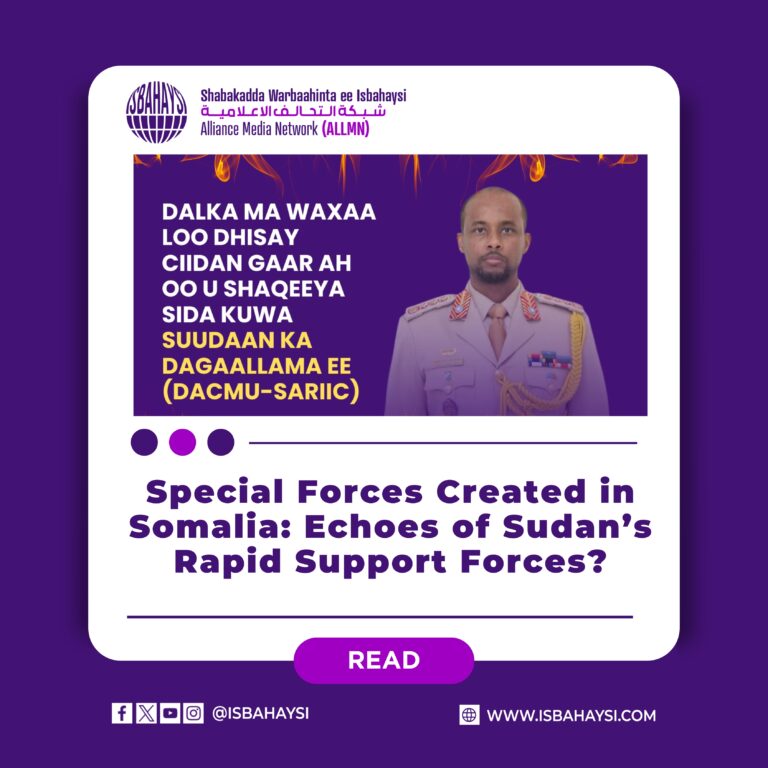
(Mogadishu, Isbahaysi) Recently, the President of the Federal Republic of Somalia, Hassan Sheikh Mohamud, issued a decree appointing four new commands to the Somali National Army (SNA). This move, deviating from the traditional structure of the SNA’s General Command, has sparked significant debate and concern.
The newly formed commands include the Training Command, General Support Command, and Reconnaissance Command, previously part of the SNA’s structure. The fourth, a newly established Special Force, stands apart as a significant development.
Somalia’s constitution outlines four military branches, with the SNA traditionally composed of Ground Forces, the Air Force, and the Navy. The newly established Special Force, however, draws from elite units of the Ground Forces, including the Presidential Guard trained in Eritrea, the Gorgor (Eagle) Forces trained by Turkey, and the Danab (Lightning) Forces trained by the United States.
These elite units, now restructured into an independent command, bypass the SNA’s General Command, directly reporting to the President. Military analysts suggest such arrangements are typical in countries with authoritarian regimes or significant coup fears, ensuring loyalty to the leader rather than the traditional military hierarchy.
This restructuring mirrors the model seen in countries influenced by the United Arab Emirates, such as Sudan, where the UAE-backed Rapid Support Forces (RSF) have caused extensive conflict, challenging the Sudanese army and government.
The commander of these Special Forces, Major General Ahmed Abdullahi Sheikh, has a notable background. Hailing from Puntland and formerly residing in Sweden, Sheikh is closely related to General Asad Diyaano, chairman of the Mideeye political party in Puntland. His career includes roles with the U.S.-trained PSF, protocol head for Prime Minister Omar Abdirashid, and commander of the Danab forces. He played a key role in organizing the UAE-trained forces under President Mohamud’s administration.
Experts warn that the creation of this Special Force serves specific interests, threatening the broader goal of rebuilding a national army. This move creates independent military units, eroding the strength and authority of the SNA’s General Command.
Moreover, establishing these new commands undermines the administrative power of the SNA’s General Command. Reports suggest foreign governments had a hand in forming these forces, raising fears that Somalia might follow Sudan’s trajectory, where the RSF ultimately contributed to the army and government’s collapse.
Is Somalia, then, on a path similar to Sudan’s, with its new Special Forces mirroring the divisive and destructive role of Sudan’s RSF?